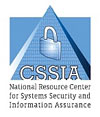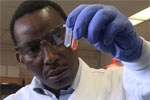Using Video for Your ATE Project
 If you're looking for a new, vibrant, and affordable way to share
your project's work, look no further than video. In the digital
age, cameras that shoot with professional quality are available
for very reasonable prices. Most editing software now comes free
on Macs (iMovie) and PCs (Windows Live Movie Maker). Many
ATE projects
and centers are taking advantage of the new perks of video
technology, and, with a short introduction to the basics of
planning, filming, and editing, you can too.
If you're looking for a new, vibrant, and affordable way to share
your project's work, look no further than video. In the digital
age, cameras that shoot with professional quality are available
for very reasonable prices. Most editing software now comes free
on Macs (iMovie) and PCs (Windows Live Movie Maker). Many
ATE projects
and centers are taking advantage of the new perks of video
technology, and, with a short introduction to the basics of
planning, filming, and editing, you can too.
There are several types of video you can create for your project.
Informational videos, which include lectures, speeches,
interviews, and career tips, are the easiest. In many cases, you
can simply record an event, like a lecture by an expert in a
specific field, which would typically only be available to those
who attended the event. Posting this video online allows many more
people to have access to this information. For examples, look at
ATETV's YouTube
channel, which includes interviews and tips on getting hired.
Instructional videos include how-to guides, tutorials,
training, simulations, and labs. These videos are useful because
they can teach viewers how to do something from virtually any
location. For examples, look at the
Advanced
Technology, Environmental, and Energy Center's YouTube
channel, which provides viewers with an inside-the-laboratory
experience.
WindTechTV
also provides video training materials and lessons to colleges
around the country.
Inspirational Videos include success stories, special
opportunities, role models, and student work samples. These videos
are great at creating enthusiasm for your project. For examples,
check out the YouTube channels of: the
AIM Institute,
which shows career success stories; the
Florida
Advanced Technological Education Center, which documents
STEM
youth camps; and the
Institute for Women
in Trades, Technology, and Science, which posts videos of
positive female role models in technological industries.
If you haven't jumped on the video bandwagon yet, or aren't sure
where to start, don't worry! Most colleges have their own
A/V equipment available for
checkout. Many local
PBS stations
offer video training courses and equipment rentals for those who
ask. In addition, there are great resources available online to
assist the beginning filmmaker. The
Vimeo Video School:
Video 101 provides a series of videos on videomaking, from
choosing a camera to shooting to editing. Each short video
introduces watchers to a short, manageable piece of information on
video production, breaking the process into discrete chunks.
The
Stanford
University Tutorial on Video Production Basics provides 50
5-10 minute videos on composition, stabilization, audio, shooting
and editing, and conducting interviews. This website would be most
useful to filmmakers who are just getting started, or those who
have some of the basics down, but want to improve the quality or
clarity of their videos. These videos also provide tips, like the
rule of thirds and lead space, which are taught in film classes at
universities around the country, but can be useful to self-taught
filmmakers.
Check out NoFilmSchool,
a site for DIY filmmakers and
independent creatives, which was Total Film's 2011 Best Creative
Blog. By subscribing, you get a free
eBook copy of The
DSLR
Cinematography Guide and newsletters with tips and suggestions.
Some other recommended sites with tips on creating your own video
include MediaCollege's
How to
Make a Video, and Mashable's
How
To Make a Great How-To Video.
Creating high quality video is now feasible for any newcomer with
the need or desire. Video equipment is reasonably priced or
available through your college, basic editing software is usually
free, and websites provide a wealth of information on what steps
the beginning filmmaker needs to take. Don't be afraid to
experiment, and be sure to check out the videos from other
ATE
projects and centers for inspiration!


 If you're looking for a new, vibrant, and affordable way to share
your project's work, look no further than video. In the digital
age, cameras that shoot with professional quality are available
for very reasonable prices. Most editing software now comes free
on Macs (iMovie) and PCs (Windows Live Movie Maker). Many
ATE projects
and centers are taking advantage of the new perks of video
technology, and, with a short introduction to the basics of
planning, filming, and editing, you can too.
If you're looking for a new, vibrant, and affordable way to share
your project's work, look no further than video. In the digital
age, cameras that shoot with professional quality are available
for very reasonable prices. Most editing software now comes free
on Macs (iMovie) and PCs (Windows Live Movie Maker). Many
ATE projects
and centers are taking advantage of the new perks of video
technology, and, with a short introduction to the basics of
planning, filming, and editing, you can too.
 What do an alternative energy technician, a chemist, and a system
administrator have in common? They’re all student successes,
made possible by
ATE-funded
programs. ATE Central, in collaboration with WBGH Boston, has
created a series of shorts called
What do an alternative energy technician, a chemist, and a system
administrator have in common? They’re all student successes,
made possible by
ATE-funded
programs. ATE Central, in collaboration with WBGH Boston, has
created a series of shorts called